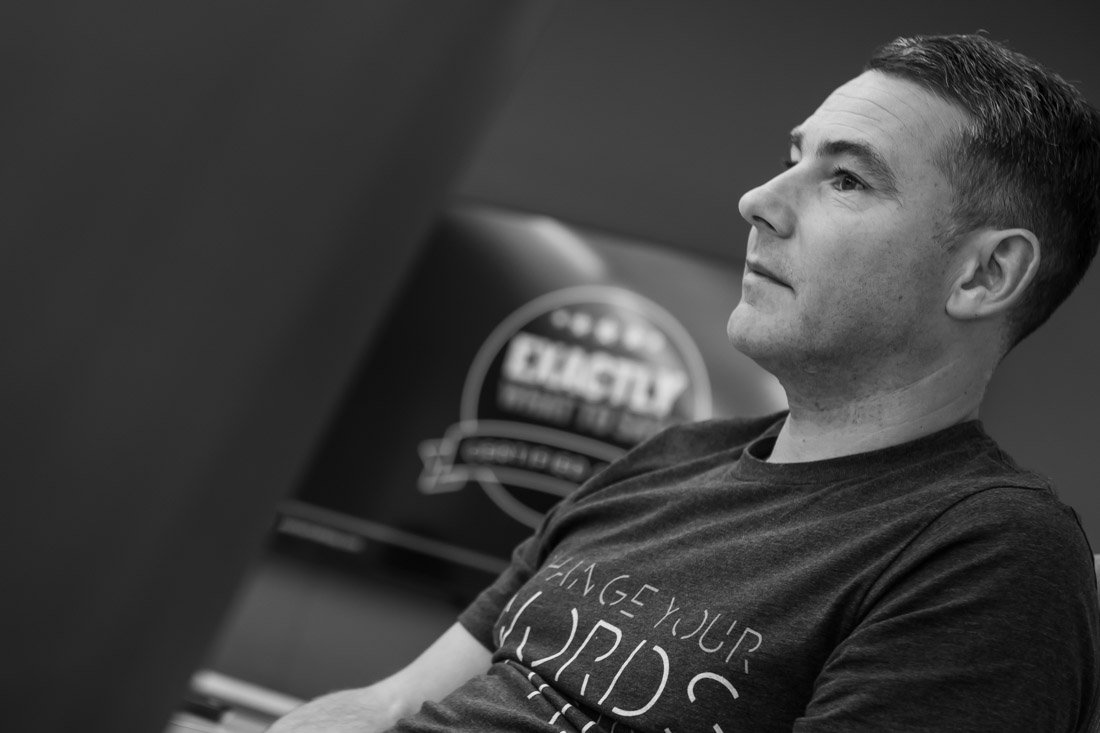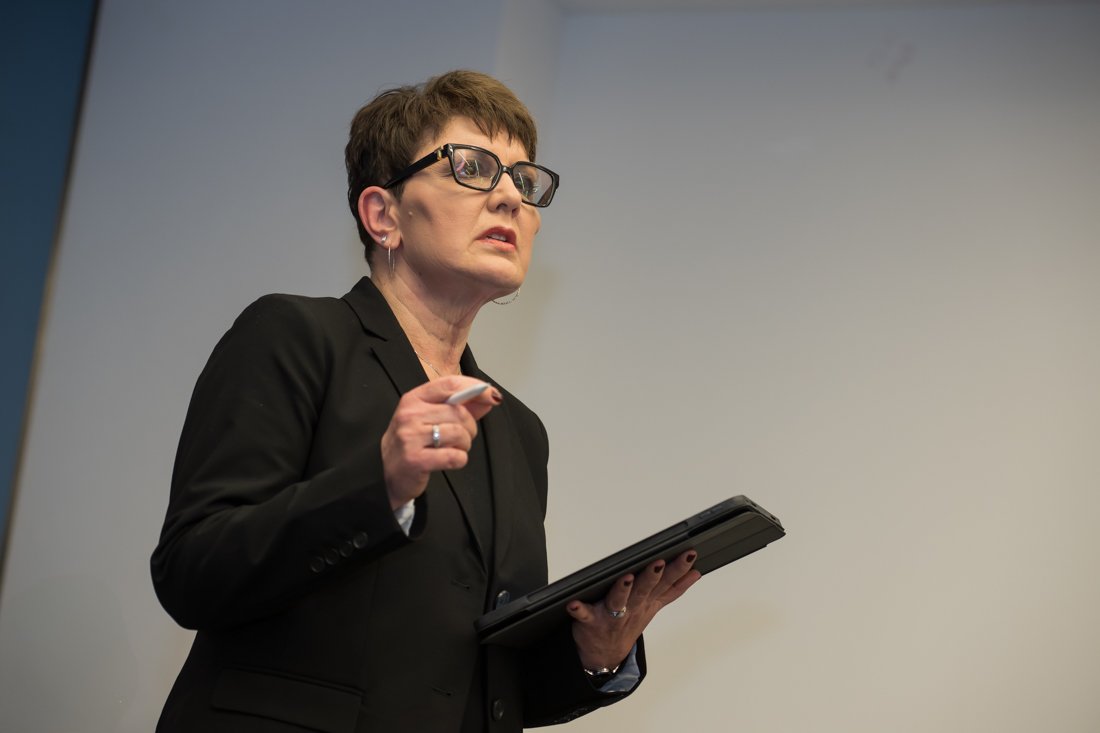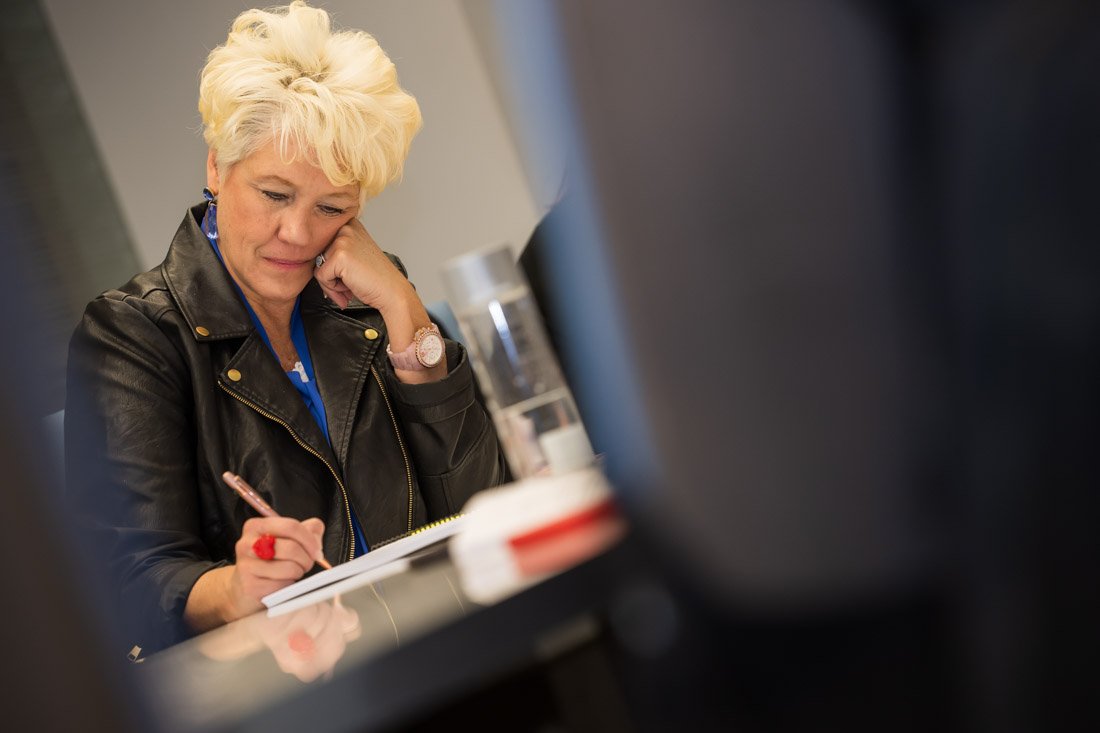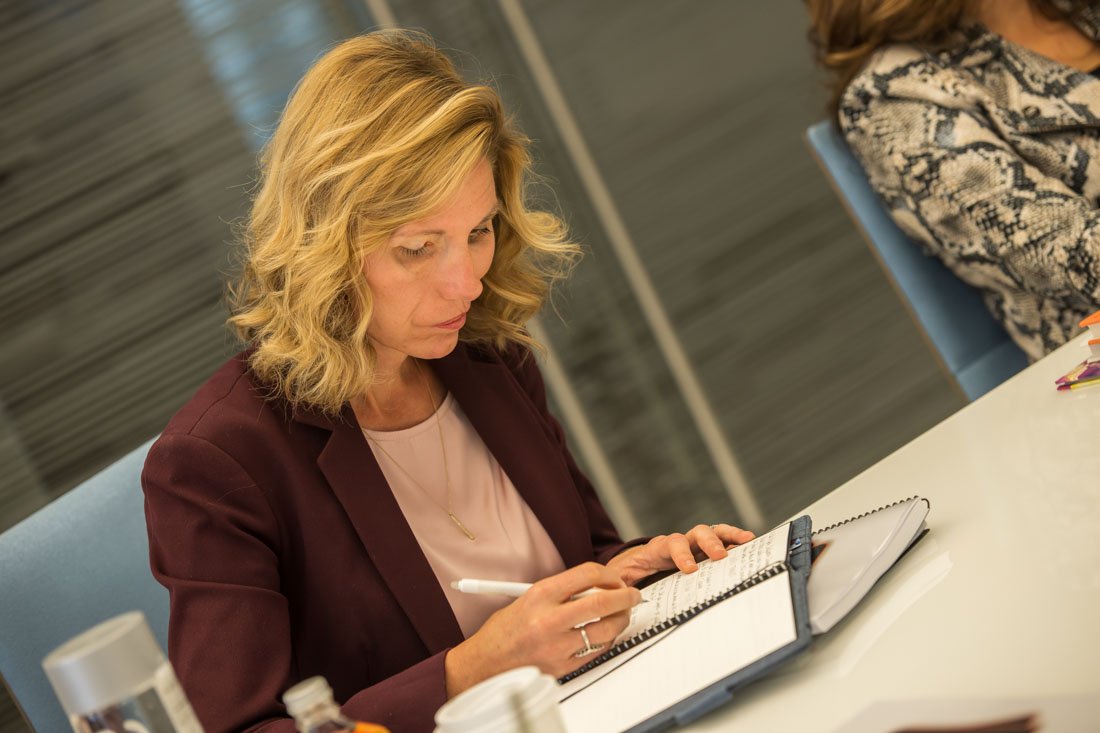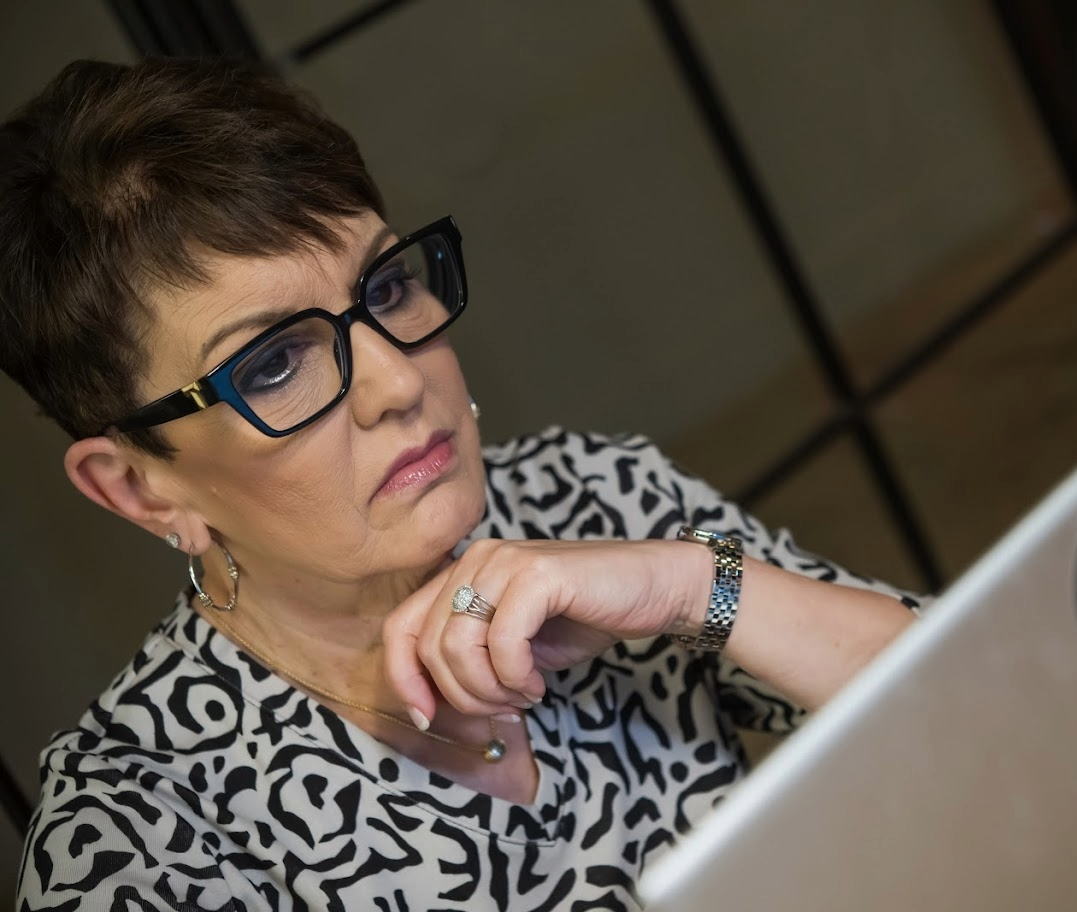EWTS Certified Guide, Dr. Jen Forristal is a Naturopathic Doctor primarily focusing on paediatric mental health. She works extensively with schools, researchers, and organizations to develop mental wellness strategies for families facing social, emotional, and mental health challenges.
She is also a parent to three children, so Critical Conversations are her world, both professionally and personally.
As a Published Author, Dr. Jen’s ideas and parenting style are now even being featured as a curriculum currently running in schools. The main concept is teaching kids that they’re not getting out of life without some challenges.
She believes that one of the best tools you can have to be a better parent is to have clear and open communication at home. In this blog, she discusses this concept and shares strategies that you can use to get the conversation started in your family.
Is Happiness The Most Important Thing?
It might surprise you, but happiness is not a marker for successful parenting.
Could it be possible that your child is happy because you are controlling to such a degree that your child doesn’t know what it means to struggle?
Every parent wants to protect their kids from turbulence but by focusing on shielding, your children don’t necessarily learn the skills to overcome life challenges.
Often when a parent focuses on creating the perfect environment, the children struggle when the parent is no longer there to control the variables.
A ‘perfect’ system would be to have your kids struggle just enough so that they can practice their coping skills. In this way, their bodies and brains can adapt to potential challenges.
When they encounter them, they will find it easier to deal with because they are building their own umbrella of coping skills instead of being sheltered by the umbrella you, the parent, hold in protection.
Do you know the challenges that your children are facing? Do they struggle well?
The Goals For Better Parenting
The conversations that you have with your children during their struggles are really pivotal to teaching them the skills to overcome life’s challenges.
If your goal is to be a better parent, then how you communicate at home is going to help you achieve this. The good news is that communication skills are going to feature prominently throughout this blog.
You want to be able to talk to your child when they are facing challenges. These are the times when you will encounter your most important Critical Conversations with your child.
Challenges are a part of life, there is no getting out of them and it’s good for your kids to experience them. To help them, you can teach them ways to help them build skills while navigating through these challenges.
Your next goal should be to become a steady, supportive presence for our kids. The world that you send your children out into is unpredictable and difficult at best.
They are going to be put into situations that as an adult, you would likely try to avoid. Most adults opt out of a lot of things because they’re hard, yet children are expected to repeatedly put themselves out there.
You can’t control the challenges that they will face as they grow, but what you can do is figure out a way to make your home a steady and supportive sanctuary for them to come back to.
Focus On Foresight, Not Hindsight
Have you ever thought that in hindsight, you wished you’d parented differently? Perhaps you’ve said the wrong thing at the wrong time. This might have led to an argument or caused more angst.
Wishing you had handled things differently when parenting is one of the most natural feelings in the world and the good news is, conversations can lessen the agony of these moments.
Conversations can create moments where you’re putting the relationship with your kids above a disagreement.
Try to “win” arguments less and instead focus on preserving your relationship so that the next time something comes up, you’re there for them and they trust you.
This is what it means to parent with foresight instead of with hindsight.
The Four Pillars Of Parenting
The journey to better communication and being a better parent is a process that requires dedication, an open mind, and a lot of listening.
There are parenting techniques and conversations that you can use to help you parent in the best way possible and Dr Jen outlines just 4 pillars that can help guide you.
Communication
How you communicate with your children will determine if they feel comfortable coming to you with any issues, or if they feel unable to.
A key question to ask yourself is: does your child have an empathetic, connected person who they share their feelings with?
The emphasis is on ‘person’ because it doesn’t matter if you’re not it, just that they have someone that they can share the big stuff with, the times that they worry about, or when they feel like things have gone wrong.
If they don’t have that, or you strive to become that person then you will need to work on your communication skills.
Lead with curiosity.
By staying curious you will find it easier to empathize because you will see the world through their lens, not yours.
You have the power as parents to create a narrative for your kids, good or bad. And a lot of times a parent can create a narrative that is based on their own experiences instead of their child’s.
Curiosity is about taking your lens off and asking more questions to get to the bottom of what your kids are actually experiencing.
Some questions that you could ask are:
What do you think that means…?
Why do you think that…?
Help me to understand…?
What makes you say that…?
Would it help if…?
This last one, asking your child if they need some help is a great way to show them that you care and are willing to compromise with them without taking the problem away.
Because, when you think about a parent with a big umbrella of coping skills and a child with a little umbrella of coping skills, they do still need our help from time to time.
Representation
Representation means that your kids can see themselves represented at home. This representation shouldn’t be because they have had to do anything for it, it should just be.
Does your child feel known, included, and able to be themselves? Can they make meaningful choices in your home?
Inside the bubble of your home, try to create as many meaningful choices for your child to make.
A point to make here is that some of these meaningful choices might end in outcomes that are not what you see as ideal.
Take, for example, homework. Are you a parent who knows everything that’s happening in your child’s homework? Do you know every little piece that is set and exactly how it’s supposed to be done? Do you step in to make sure that the homework is done exactly how the teacher wants It to be done?
Whilst this might be what you see as good parenting, the ‘keeping on top of it’ element is actually being controlled by you.
Could it be possible that by monitoring so intently, you are minimizing the responsibility that should by rights be your child’s?
In this scenario, there’s very little room for meaningful choice because the parent is 100% in control of that homework piece.
Allow your child to make those meaningful choices like whether or not they do it and how well they complete it. Because, by allowing them to do this, they will learn what they should or should not be doing because it is a true representation of themselves and the work they complete.
Every parent wants to protect their kids from turbulence but by focusing on shielding, your children don’t necessarily learn the skills to overcome life challenges.
Boundaries & Safety
Boundaries and safety are crucial to creating a harmonious home, but they can cause a lot of friction.
Some things to consider here are:
- Are the rules in your house grounded in care and clearly explained?
- Are they collaborative and flexible?
- Does a lot of conflict happen around boundaries and rules?
Have you ever tried getting your child involved in creating the rules and having a say in setting the boundaries?
When it comes to setting rules, research has found that the more rigid of a thinker you are the more likely this will cause anxiety and in some cases, really aggressive behavior in kids.
If you can use a little bit of cognitive flexibility as a parent, it might make this process much easier.
You can do this by asking a question such as: How important is it that…? For example, going to that party…
By asking a question like this, you’re adding a little space for negotiation and conversation whilst trying to learn about what your child thinks about it. It might even mean that after talking it through, your worry about them attending is lessened, or they might even realize that it’s not actually that important.
A question that starts with: How important is it? Can open the door to many wonderful interactions and will help you learn more about your children.
Parent Self-Regulation
Are you able to regulate your own emotions as a parent?
One of the hardest things to do as a parent is to look introspectively and see the conflicts that are happening within you. But the cornerstone of all good parenting is figuring out how to self-regulate, not allow emotions to drive your parenting, and allowing the choices that you’ve made about what kind of parent you want to be, to drive your parenting.
This doesn’t mean that you will never get angry or lose your cool, this is not possible, we are all human. But when it does happen, show your kids that A, it’s okay to be angry, and B when you get angry, you repair the relationship and own the feelings that you had.
You could say in these situations: Yes I got angry and that was my fault but I am in charge of my anger and I apologize…
Ultimately, even if your kids are doing things that are making you angry, it is your responsibility to handle your feelings and to do the right thing by them.
This often means owning it, even if your child has made you angry. This teaches them that there is a right and wrong way to let anger exist.
It’s your responsibility to start the cycle of co-regulation. When you are in conflict and emotions are escalating with your child, you should start to try to bring yourself into a calmer state. This might involve taking a couple of deep breaths, or saying things like: ‘Can we put this on pause for a second? I just want to get my emotions in check here.’
From here you can start to calm down your nervous system. You might even start to talk a little bit more slowly. Take some deep breaths and calm yourself down. This will help you create a calmer environment.
The Umbrella Effect
There is a lot of information about parenting out there, and it can feel a little daunting and overwhelming. The pressure to be the perfect parent is felt by many, but being the perfect parent is an impossible standard that no one can achieve.
By working on your relationships and keeping an open line of communication, you will provide the best path for your children.
Dr. Jen recommends doing the umbrella check-in. This is a set of questions that can tell you about your own coping skills, such as autonomy and cognitive flexibility. All these skills are in the umbrella assessment and this is a really positive thing for families to do together.
You can learn more about Dr. Jen’s Umbrella Assesment in her book, available on Amazon and over on her website.
This blog was taken from the EWTS Critical Conversations webinar series. If you would like to discover more of what our insightful Certified Guides have to offer, click here.


